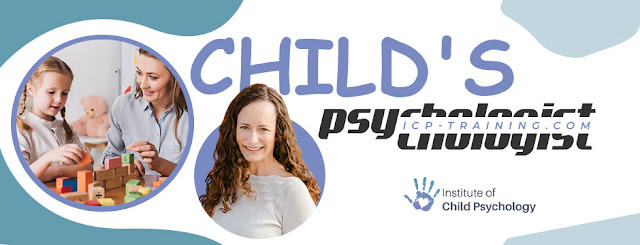Understanding Child Development: A Guide to Kids Psychology
Child development is a fascinating and complex process. Children go through a series of changes that shape their physical, emotional, and cognitive abilities as they grow and develop. Understanding child development is essential for parents, caregivers, and educators to effectively support children's growth and development. This blog will look at child development and provide a primer on kids psychology.
Child Developmental Stages
Child development is frequently divided into stages based on age. These stages serve as a framework for comprehending the changes that children experience as they grow and develop.
a) Childhood (birth to 2 years)
Childhood is a time of rapid growth and development. Children develop their motor skills, language skills, and social-emotional abilities during this stage. Infants learn about their surroundings through their senses and require a great deal of interaction and stimulation from caregivers.
b) Early Childhood Education (2 to 6 years)
Early childhood is a crucial period of cognitive, emotional, and social development. At this age, children learn language and communication skills, develop motor skills, and begin to understand social norms and expectations.
c) Childhood in the Middle (6 to 11 years)
Middle childhood is a time when cognitive and social development continues. At this age, children learn to problem-solve and critical thinking skills, as well as how to control their emotions and develop a sense of self-identity.
d) Adolescent hood (11 to 18 years)
Adolescence is a time of rapid physical, cognitive, and emotional development. Teenagers refine their abstract reasoning abilities, social skills, and sense of self. This stage is frequently marked by increased emotional reactivity and risk-taking behavior.
Nature and Nurture's Role in Child Development
Both nature and nurture are important in child development. Nature refers to the genetic factors that influence a child's development, whereas nurture refers to environmental factors such as the child's experiences and interactions with their environment.
a) Genetic Factors
Intelligence, temperament, and physical characteristics are all influenced by genetic factors. However, genetic factors do not entirely determine a child's development. Environmental factors can also have a significant impact on a child's development and growth.
b) Environmental Aspects
Environmental factors such as family, culture, and community are also important in the development of children. Positive interactions with caregivers and exposure to a stimulating environment can aid in the growth and development of children. Negative experiences, such as neglect or abuse, on the other hand, can impede a child's development.
Play's Importance in Child Development
Play is an important part of a child's development. Play allows children to discover the world around them, develop social and emotional skills, and learn to problem-solve and critical thinking skills.
a) Different Types of Play
Physical play, imaginative play, and social play are all examples of different types of play. Different types of play help different aspects of a child's development.
b) The Advantages of Play
Play has numerous developmental benefits for children, including improved cognitive function, increased social skills, and improved emotional regulation.
Child Development Assistance
Parents, caregivers, and educators all play an important role in their children's growth and development.
a) Creating an Exciting Environment
Children's cognitive, physical, and emotional development can be aided by providing a stimulating environment that includes age-appropriate toys and activities.
b) Successful Interactions and Relationships
Children's social and emotional skills can be improved through positive interactions and relationships with caregivers and peers.
c) Promoting Play
Encouraging play and allowing children to explore and experiment can help them with problem-solving and critical thinking skills.
Seeking Assistance
If you are worried about your child's psychology, you should consult a pediatrician or a developmental specialist. Early intervention can make a big difference in supporting children's development and addressing potential problems.
To summarize, understanding child development is critical for parents, caregivers, and educators to effectively support children's growth and development. Child development occurs in stages, is influenced by both genetic and environmental factors, and is aided by play. Children's development can be aided by providing a stimulating environment, positive interactions and relationships, and encouraging play. It is critical to recognize potential developmental issues and seek help if necessary.
How Institute of Child Psychology Assists?




Comments
Post a Comment